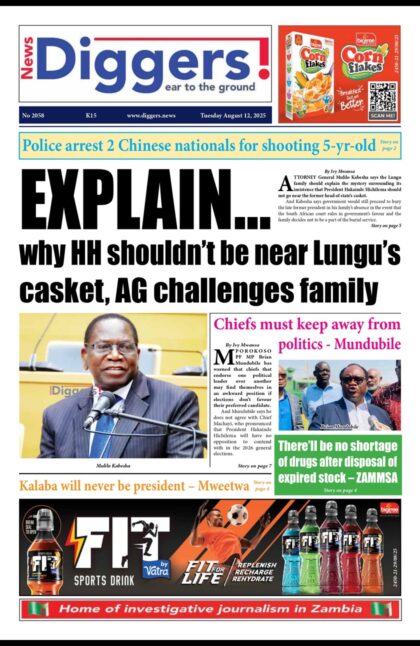MINISTRY of Information Media Director and Spokesperson Thabo Kawana has struggled to explain the role of a Permanent Secretary for Special duties and why four people have so far been given that position.
Speaking when he featured on the Hot FM’s Hot Seat programme, Thursday, Kawana said permanent secretaries for special duties carried out “duties that are special”.
Below is a transcript of the conversation between Kawana and Hot FM presenter Peter Zulu:
Kawana: Government operates in an established structure of positions. So in the structure of government, there are four positions for PSs for Special Duties and those positions have been filled. There is no issue there.
Presenter: What is their job description?
Kawana: Special duties.
Presenter: What are special duties Mr Kawana?
Kawana: Duties that are special.
Presenter: What are they?
Kawana: They are duties.
Presenter: What are they? Can you give us a practical example?
Kawana: I will tell you that this answer will not change. Let us move to the next questions.
Presenter: You will not answer this question? You will not give us an explanation of what it is or what their job description is?
Kawana: It is a special duty.
Presenter: What is a special duty?
Kawana: What do you mean what is a special duty? It is a duty that is special.
Presenter: You are not answering my question Mr Kawana, we shall move on to something else.
However, after seemingly receiving more information on the subject later during the programme, Kawana explained that a Permanent Secretary for Special duties carried out duties as delegated.
“A PS special duty is as good as what you would refer to as PS without portfolio. Remember like in the MMD we had Ministers without portfolio. They carry out duties as delegated. Sometimes by Secretary to Cabinet, sometimes by higher authorities and so on. They cut across all Ministries so it is important that you have such kind of players. Even when you were young and growing up, you played games. And the games you played, you even had wa gava (an extra). So it is important that you have PSs ba gava,” he said.
Meanwhile Kawana said the UPND government would do what was right rather than making popular decisions for the sake of becoming people’s “darlings”.
“We are settling. Settling does not occur in a day or two, it is a process. But we are settling and I would say in terms of percentage, we are 90 percent settled. You must understand that this government from the word go stated that it is not a populist government and it will not take popular decisions for the sake of becoming darlings of the people. We will do what is right and what ought to be done,” he said.
“We may be misunderstood but eventually the people will see the benefit of what these measures are going to result into. So what needs to be done will be done, popular or unpopular. Understood or misconstrued by people, it has to be done. There are plans to build correctional facilities across the country. There are also plans to expand the existing facilities across the country so that we depopulate the congestion that is obtaining in most facilities.”
Kawana said President Hakainde Hichilema meant well for the people of Zambia.
“Zambians are like a woman that has been in a marriage that is very abusive. She held on for the sake of the children but she reached a point where she says ‘no more, I need out’ so she quits and divorces. But later she meets a man and within a short period she gets married again. There are trust issues and she is very emotional, easily agitated,” he said.
“She is looking for signs in the new man that should not dare take her back to what she went through in her old marriage. That marriage will eventually start rocky but two or three years later, the woman will understand her husband. Zambians went through a bad marriage with the previous regime. When we cross two to three years they will be able to see that this new husband called Hakainde Hichilema means well for the lady called Zambia.”
Kawana said it was up to established institutions to verify whether former president Edgar Lungu’s barber had been tortured while in custody.
“As regards torture, it is against the law in Zambia. To be told that the barber man of former president Edgar Lungu has been tortured, these are just things we are hearing from the press. It is not in my province today whether he has been tortured because he is in the custody of the police. And the police are in the right position if there is anything they can tell us about the case they are investigating. What I am seeing from where I am seated is people saying they have no access to this man, ‘we do not know where he is’. The next day they are saying he is been tortured,” said Kawana.
“So where did you see him being tortured? When did you access him and saw that he was being tortured when you say you do not know where he is? So those are political sentiments by politicians. You need to hear from established institutions like the Human Rights Commission who can have access and they can determine if there is torture going on or not. But to hear from politically interested players, most of the time that is meant to just alarm the nation. So we wait from institutions like the Human Rights Commission and the police themselves to be able to verify if there is any torture at all.”
























